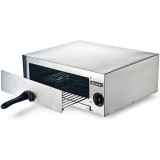Why Did My Smoke Alarm Randomly Go Off?
Smoke alarms are essential safety devices that can save lives by alerting you to potential fire hazards. However, it can be frustrating and confusing when your smoke alarm goes off randomly, especially if there's no apparent cause. In this article, we'll explore the most common reasons why smoke alarms go off randomly and provide tips on how to prevent it from happening.
1. Dust and Dirt Accumulation: Smoke detectors rely on sensitive sensors to detect smoke particles. Over time, dust and dirt can accumulate on these sensors, causing them to become overly sensitive and triggering false alarms. Regular cleaning and maintenance, such as vacuuming around the alarm or using a soft brush to remove dust, is crucial.
2. Cooking Smoke and Steam: Cooking smoke and steam can also trigger smoke alarms, especially if they're located near the kitchen. When cooking, try to keep the alarm at a distance from the stovetop or oven, and use the exhaust fan to ventilate the cooking area. Avoid burning food, as excessive smoke can set off the alarm.
3. Insect or Pest Activity: Small insects or pests, such as spiders, moths, or gnats, can sometimes find their way into smoke alarms and disrupt the sensors. If you suspect insect activity, inspect the alarm for any signs of debris or webbing, and take appropriate pest control measures.
4. Low Batteries: When the batteries in a smoke alarm are low, they can start to malfunction and cause random alarms. Make it a habit to replace the batteries in your smoke alarms regularly, as recommended by the manufacturer. Most alarms have a low battery indicator light that will illuminate when it's time to change them.
5. Faulty Wiring: In some cases, faulty wiring can cause smoke alarms to go off randomly. If you're experiencing persistent false alarms and have ruled out other causes, it's important to have the wiring inspected by a qualified electrician. Electrical issues can be dangerous and should be addressed promptly.
6. Age of the Alarm: Smoke alarms do have a lifespan, typically around 8-10 years. As they age, the sensors can become less sensitive and more prone to false alarms. If your alarm is approaching the end of its lifespan, consider replacing it with a new one.
Tips for Preventing False Alarms:
- Clean smoke alarms regularly to remove dust and debris.
- Keep smoke alarms away from areas where cooking smoke or steam can reach them.
- Check for signs of insect or pest activity and take appropriate measures to eliminate them.
- Replace batteries regularly as recommended by the manufacturer.
- Have the wiring inspected by a qualified electrician if you suspect any electrical issues.
- Consider replacing aging smoke alarms after 8-10 years.
By understanding the common causes of random smoke alarm activations and following these preventive measures, you can reduce the likelihood of false alarms and ensure that your smoke alarm is functioning properly to protect you and your loved ones.
Why Do Smoke Detector Alarms Go Off Even When There S No Abc News

Why Do Smoke Alarms Keep Going Off Even When There S No

Alarm Goes Off Randomly So What Should You Do

What May Cause Your Fire Alarm To Go Off Randomly Teague Security

Why Do Smoke Alarms Keep Going Off Even When There S No Usc News Events University Of South Ina

8 Reasons Why Your Fire Alarm Goes Off Randomly

How Do I Stop My Kidde Smoke Alarms Going Off All The Time Fire Safety Information

Smoke Detector False Alarms In Homes Top 10 Trigger Reasons

9 Reasons Why Your Fire Alarm Keep Going Off Randomly

Smoke Detector False Alarm Fix How To Prevent Randomly Going Off








